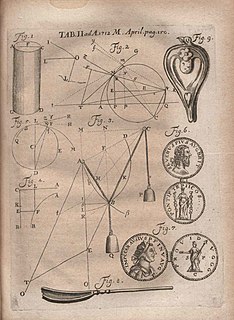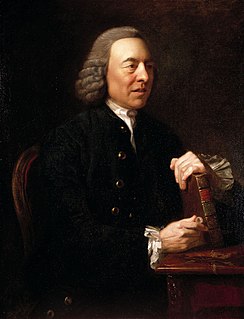Related Research Articles

Conyers Middleton was an English clergyman. Mired in controversy and disputes, he was also considered one of the best stylists in English of his time.

John Battely (1646–1708) was an English antiquary and clergyman, Archdeacon of Canterbury 1688–1708. He was the author of two antiquarian works published after his death: Antiquitates Rutupinae and Antiquitates S. Edmundi Burgi ad Annum MCCLXXII Perductae. John Battely was the brother of Nicholas Battely, who edited William Somner's Cantuaria sacra, the first account of the antiquities of Canterbury.

John Montagu or Mountague was an English churchman and academic.
Dr Samuel Brooke (1575–1631) was a Gresham Professor of Divinity, a playwright, the chaplain of Trinity College, Cambridge and subsequently the Master of Trinity (1629–1631). He was known to be an Arminian and anti-Calvinist. In 1631 he was appointed archdeacon of Coventry.
Robert Beaumont was Master of Trinity College, Cambridge from 1561 to 1567 and twice Vice-Chancellor of the University of Cambridge. During this time, he commissioned Hans Eworth to copy the 1537 Hans Holbein portrait of King Henry VIII. This copy was bequeathed to Trinity College where it hangs to this day.
Nicholas Upton (1400?–1457), was an English cleric, precentor of Salisbury, and writer on heraldry and the art of war.

Edward Waddington (1670?–1731) was an English prelate, bishop of Chichester from 1724 to 1731.
Arthur Yeldard (c.1530–1599) was an English clergyman and academic, chosen as the first Fellow and second President of Trinity College, Oxford.
Clement Corbet was an English jurist.
Roger Goad (1538–1610) was an English academic theologian, Provost of King's College, Cambridge, and three times Vice-Chancellor of the University of Cambridge.

William Beale was an English royalist churchman, Master in turn of Jesus College, Cambridge and St John's College, Cambridge. He was subjected to intense attacks by John Pym from 1640, for an unpublished sermon he had given in 1635 supporting royal prerogative. According to Glenn Burgess, Pym's attention to Beale was because he exhibited a rare combination of Arminian or Laudian theological views with explicit political views tending to absolutism.
Richard Clayton was an English churchman and academic, Master of Magdalene College, Cambridge and St John's College, Cambridge and Dean of Peterborough.
Richard Howland (1540–1600) was an English churchman and academic, Master of Magdalene College, Cambridge, and of St John's College, Cambridge, and bishop of Peterborough.

Matthias Mawson (1683–1770) was an English churchman and academic, who served as Master of Corpus Christi College, Cambridge and then as Bishop of Llandaff, Bishop of Chichester, and Bishop of Ely.

Richard Walker (1679–1764) was a professor of moral philosophy at the University of Cambridge, noted as a supporter of Richard Bentley in his long legal battle with the fellowship of Trinity College.
John Colbatch, sometimes Colbach, was an English churchman and academic, professor of moral philosophy at Cambridge. Drawn into the long legal struggle between Richard Bentley and the fellowship of Trinity College, Cambridge, he became a chief opponent and spent a short time in prison for a tactless court appearance.

John Gostlin was an English academic and physician, Master of Gonville and Caius College, Cambridge from 1619 and Regius Professor of Physic.

Benjamin Stillingfleet (1702–1771) was an English botanist, polymath, and author.
Giovanni Francisco Vigani, known also as John Francis, was an Italian chemist who became the first professor of chemistry in the University of Cambridge.

William Richardson (1698–1775) was an English academic and antiquary, Master of Emmanuel College, Cambridge from 1736.
References
- ↑ "Baker, John (BKR695J)". A Cambridge Alumni Database. University of Cambridge.
- ↑ Addit. MS. 5846 f. 123 b.
- ↑ Addit. MS. 5804, f. 81.
. Dictionary of National Biography . London: Smith, Elder & Co. 1885–1900.
- Attribution
![]() This article incorporates text from a publication now in the public domain : "Baker, John (d.1745)". Dictionary of National Biography . London: Smith, Elder & Co. 1885–1900.
This article incorporates text from a publication now in the public domain : "Baker, John (d.1745)". Dictionary of National Biography . London: Smith, Elder & Co. 1885–1900.